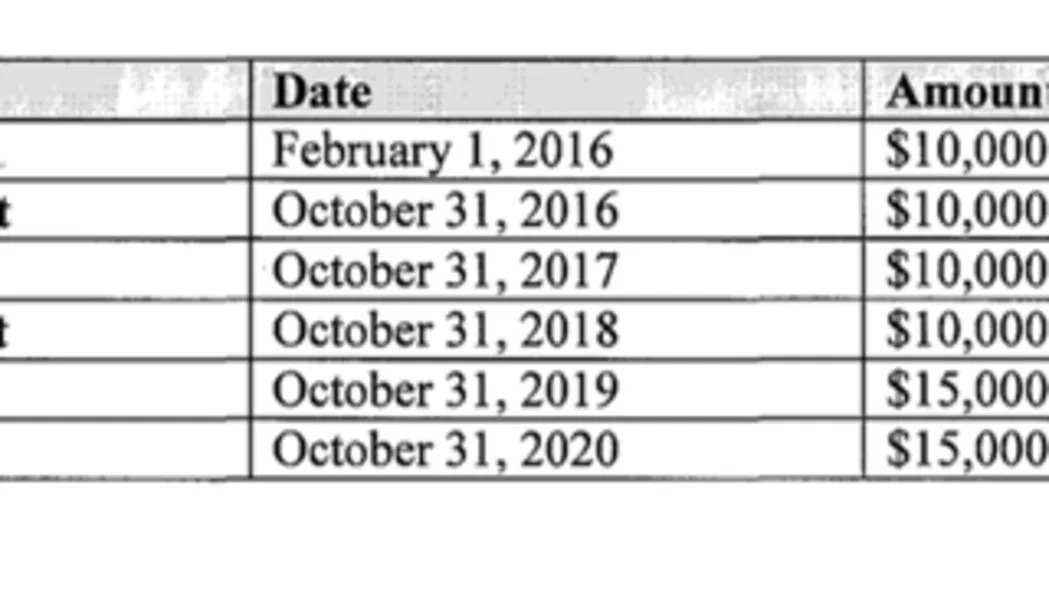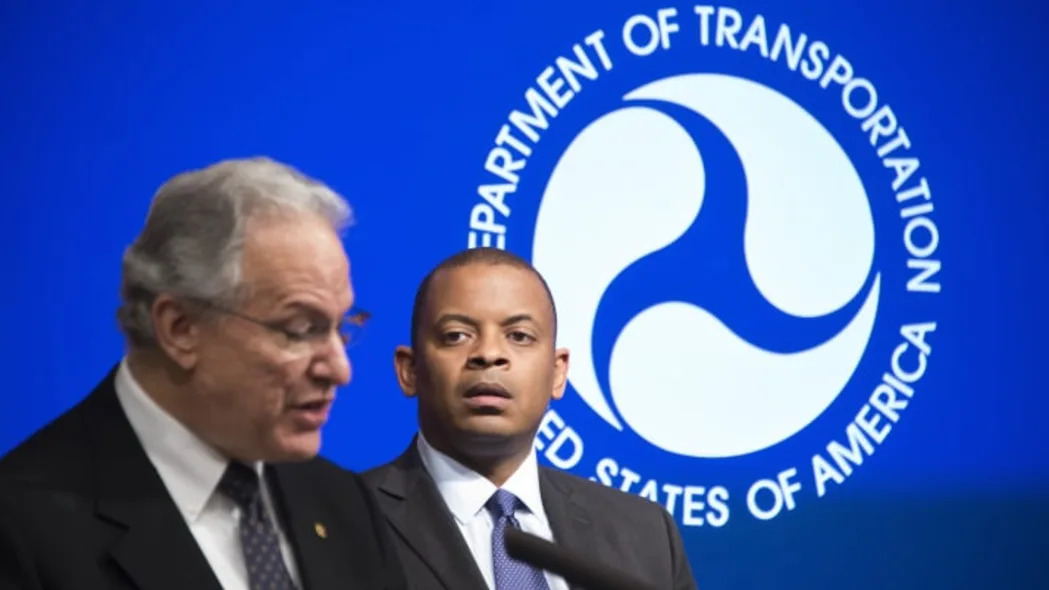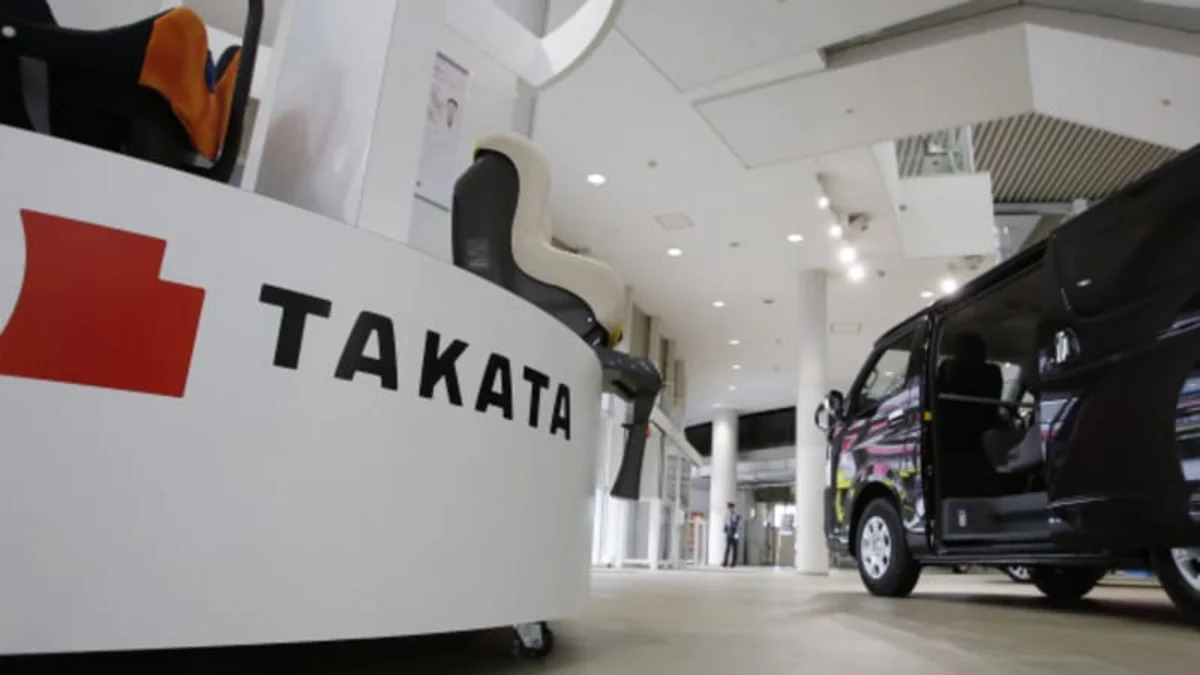The record-breaking fine federal authorities handed down to airbag manufacturer Takata last week might be chump change. Regulators trumpeted a "record civil penalty" of $200 million for the automotive supplier, whose airbags sometimes kill motorists instead of saving their lives. But $130 million of that is deferred, so long as the company phases out certain types of airbag inflators and stops breaking safety laws.
Of the remaining $70 million Takata owes, federal regulators are allowing the company to pay in smaller installments stretched over the next five years. It's an unusual financial structure. The company will make four payments of $10 million each through 2018, and then two payments of $15 million a piece by October 31, 2020, per details in a consent order issued by the National Highway Traffic Safety Administration (photo below).
For Takata, a global company that reaped $5.8 billion in revenue last year, an annual $10 million fine amounts to 0.17 percent of its 2015 financial haul. "Meager fines do nothing more than change the costs of doing business and provide no meaningful deterrence for continuing reprehensible and irresponsible behavior," Senators Richard Blumenthal (D-Connecticut) and Ed Markey (D-Massachusetts) said in a joint statement.

On rare occasions, NHTSA has allowed small companies to pay fines in installments. In 2003, for example, the agency allowed lamp supplier American Products Company to spread a $650,000 fine over four quarterly payments all made within one calendar year. But carmakers and large suppliers have never received such treatment. When NHTSA has penalized them in the past, it has required them to make lump-sum payments within 30 to 60 days of the consent order.
When the federal agency fined Honda, FCA, General Motors, and Graco over the past 18 months, all were required to pay in full within 60 days of the consent order. Chrysler owed its full $70 million due within 60 days of its agreement with NHTSA, General Motors owed a full $35 million within 30 days and Honda paid its lump sum of $70 million within 30 days.

Department of Transportation Secretary Anthony Foxx, right, and NHTSA administrator Mark Rosekind, left, said the consent order imposes the largest civil penalty in the agency's history. For the first time, the agency also invoked its authority to accelerate the timeline of recalls for roughly 19 million affected cars. Asked about the payment structure, a NHTSA representative said the consent order explained the criteria. There's a paragraph in the consent order that explains how the agency determined the "appropriate amount" for the fine, but no details explain the rationale of the five-year structure.
The consent order did contain provisions which barred Takata from claiming its financial payments as tax deduction or seeking to use them for tax credits.
Safety advocates say the protracted nature of the payments fails to deter future malfeasance. Each year, the Department of Transportation issues guidance on how policymakers and manufacturers should measure the benefit of saving a human life from a traffic accident versus the economic cost to deploy safety technology. It's called the "economic value of a statistical life," and this year, the DOT says the worth of each human life is $9.4 million.
Eight motorists have been killed as a result of Takata's defective airbags. Lou Lombardo, a former NHTSA safety research scientist and now founder of Care for Crash Victims, notes that means the $70 million overall fine amounts to $8.75 million per death – less than the Transportation Department's own definition of the value of a human life. At least officially, the number is geared toward saving lives in the future, not for punishing past misdeeds. But for Lombardo and other safety advocates, it's nonetheless an indicator Takata got slapped on the wrists.
Related Video:
Of the remaining $70 million Takata owes, federal regulators are allowing the company to pay in smaller installments stretched over the next five years. It's an unusual financial structure. The company will make four payments of $10 million each through 2018, and then two payments of $15 million a piece by October 31, 2020, per details in a consent order issued by the National Highway Traffic Safety Administration (photo below).
For Takata, a global company that reaped $5.8 billion in revenue last year, an annual $10 million fine amounts to 0.17 percent of its 2015 financial haul. "Meager fines do nothing more than change the costs of doing business and provide no meaningful deterrence for continuing reprehensible and irresponsible behavior," Senators Richard Blumenthal (D-Connecticut) and Ed Markey (D-Massachusetts) said in a joint statement.

On rare occasions, NHTSA has allowed small companies to pay fines in installments. In 2003, for example, the agency allowed lamp supplier American Products Company to spread a $650,000 fine over four quarterly payments all made within one calendar year. But carmakers and large suppliers have never received such treatment. When NHTSA has penalized them in the past, it has required them to make lump-sum payments within 30 to 60 days of the consent order.
When the federal agency fined Honda, FCA, General Motors, and Graco over the past 18 months, all were required to pay in full within 60 days of the consent order. Chrysler owed its full $70 million due within 60 days of its agreement with NHTSA, General Motors owed a full $35 million within 30 days and Honda paid its lump sum of $70 million within 30 days.

Department of Transportation Secretary Anthony Foxx, right, and NHTSA administrator Mark Rosekind, left, said the consent order imposes the largest civil penalty in the agency's history. For the first time, the agency also invoked its authority to accelerate the timeline of recalls for roughly 19 million affected cars. Asked about the payment structure, a NHTSA representative said the consent order explained the criteria. There's a paragraph in the consent order that explains how the agency determined the "appropriate amount" for the fine, but no details explain the rationale of the five-year structure.
In determining the fine, NHTSA accounted for the "substantial costs Takata will incur" in implementing an outreach plan for customers, further testing for certain inflator models and obligations spelled out in the consent order. Among other items taken into consideration: Takata's decision to fire certain employees – neither the agency nor the company will say how many were fired or what positions they held – and Takata's "commitment to cooperate" and a push to improve its internal safety culture."Meager fines do nothing more than change the costs of doing business and provide no meaningful deterrence."
The consent order did contain provisions which barred Takata from claiming its financial payments as tax deduction or seeking to use them for tax credits.
Safety advocates say the protracted nature of the payments fails to deter future malfeasance. Each year, the Department of Transportation issues guidance on how policymakers and manufacturers should measure the benefit of saving a human life from a traffic accident versus the economic cost to deploy safety technology. It's called the "economic value of a statistical life," and this year, the DOT says the worth of each human life is $9.4 million.
Eight motorists have been killed as a result of Takata's defective airbags. Lou Lombardo, a former NHTSA safety research scientist and now founder of Care for Crash Victims, notes that means the $70 million overall fine amounts to $8.75 million per death – less than the Transportation Department's own definition of the value of a human life. At least officially, the number is geared toward saving lives in the future, not for punishing past misdeeds. But for Lombardo and other safety advocates, it's nonetheless an indicator Takata got slapped on the wrists.
Related Video:


Sign in to post
Please sign in to leave a comment.
Continue